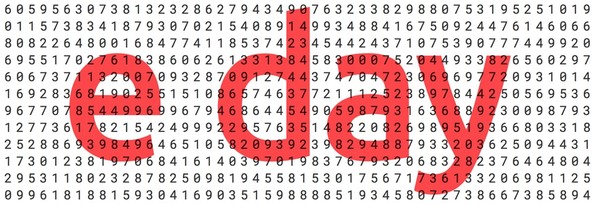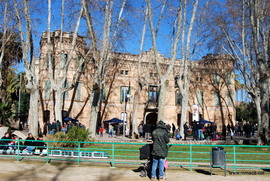Cómo obtenemos información, cómo vivimos, cómo nos comunicamos… todo esto ha cambiado radicalmente en las últimas dos décadas. Las nuevas tecnologías digitales son fundamentales en nuestra vida diaria y nos ofrecen un sinfín de posibilidades. Algunos lo llaman la revolución digital, que sería comparable a hitos como la invención de la imprenta. El Año de la Ciencia 2014 «La Sociedad Digital» nos enseña cómo la investigación puede...Leer más
e-day - A mathematical holiday celebrated on February 7th

Today, February 7th, 2018, is called e-day because e is approximately 2.718, and this date is written 2/7/18 in some parts of the world.
e, also called Euler’s Number after the Swiss mathematician Leonhard Euler, is a very important constant that comes up in many different places in mathematics. The numer e was discovered by the Swiss mathematician Jacob Bernoulli while studying compound interest where e arises as the limit of (1 + 1/n)n as n approaches infinity. e can also be calculated by summing:
The constant e appears naturally on the exponential function, which models growth. Hence, the same way that the constant π appears in everything that is round, the number e appears in everything that grows: size of baby animals, leaves in trees, bacteria populations, spreading of diseases, spirals in flowers and snails, radiactive decay of elements, money invested in a bank, processing power of computers… Everything that grows the faster the bigger it is follows an exponential law, and contains the number e.
e has an infinite number of digits. We prepared a website listing the first 60.000 digits of e and help you find your birthday in it:
If we assign a number to each letter in the alphabet we can even find your name within the digits of e, along with the complete works of William Shakespeare, the ending of Game of Thrones (spoiler alert), the full text of the Wikipedia from the year 2030 or what you’ll have tomorrow for breakfast…
At least that’s what conjectured: It is conjectured that e is a normal number. In normal numbers every possible sequence of digits of a certain length appears with the same frequency. There are approximately as many 1s as 9s, as many 23s as 42s, as many 0000s as 1111s, etc. So within the infinite digits of a normal number we are able to find any possible sequence of any finite length.
Happy e-day to you!





